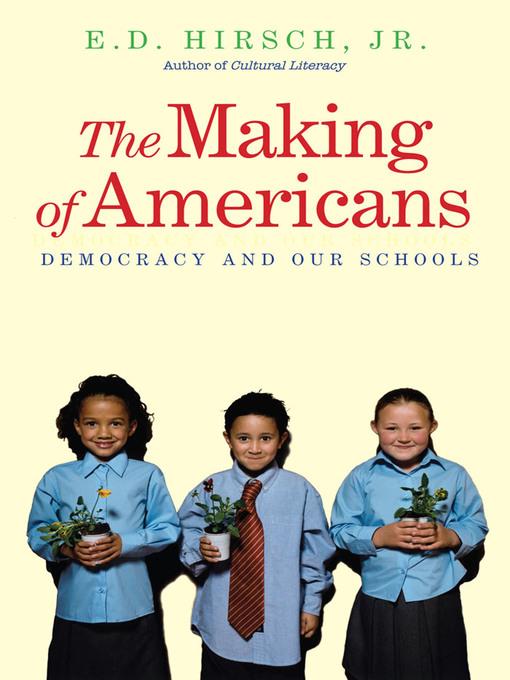
The Making of Americans
Democracy and Our Schools
- اطلاعات
- نقد و بررسی
- دیدگاه کاربران
نقد و بررسی

June 29, 2009
Hirsch's 1987 bestseller, Cultural Literacy
, generated an intense debate over its proposals for education reform, namely that all schools should teach a standard core curriculum—the information every American should be equipped with in order to participate in the national cultural life (e.g., everyone should understand the term “Achilles heel”; know who said, “To be or not to be” or who wrote the Gettysburg Address). Hirsch's new book fine-tunes his philosophy while rebutting the criticism that “cultural literacy” fostered a conservative “white” curriculum that didn't take into account the learning styles and knowledge base of minority groups. Although must reading for educators, the book undoubtedly will reignite the earlier controversy. For example, Hirsch questions the wisdom of charter schools and educational vouchers, insisting that a “trans-ethnic” common educational experience can be had only in public schools attended by rich and poor together. However, in the context of the continuing shortcomings of American education and armed with the support of prominent educators, Hirsch once again challenges the prevailing “child-centered” philosophy, championing a return to a “subject-centered” approach to learning.

October 15, 2009
Controversial educational theorist Hirsch ("Cultural Literacy: What Every American Needs To Know") returns, here arguing that a single radical reformthe return to a nationally standardized K-6 curriculumwill fix what ails the modern educational system. He notes that decades of permissive educational strategies have left Americans without a foundation of common knowledge to build upon. At home, test scores have steadily declined, and abroad we rank in the bottom quartile of OECD (Organization for Economic Co-Operation and Development) countries. Since high academic achievement is demonstrably related to reading comprehension and thus to a functional body of general knowledge, argues Hirsch, conveying that general knowledge should be a precursor to all other learning. He also envisions such a curriculum as a great equalizer for the multitudes of people who make up the United States. VERDICT Hirsch's tone is conversational but authoritative, and he deftly elucidates the issues at hand in an engaging manner for a general audience. His book will give engaged educators and concerned parentswhether or not they agree with hima lot to discuss.Robert Perret, Univ. of Idaho Lib., Moscow
Copyright 2009 Library Journal, LLC Used with permission.




دیدگاه کاربران